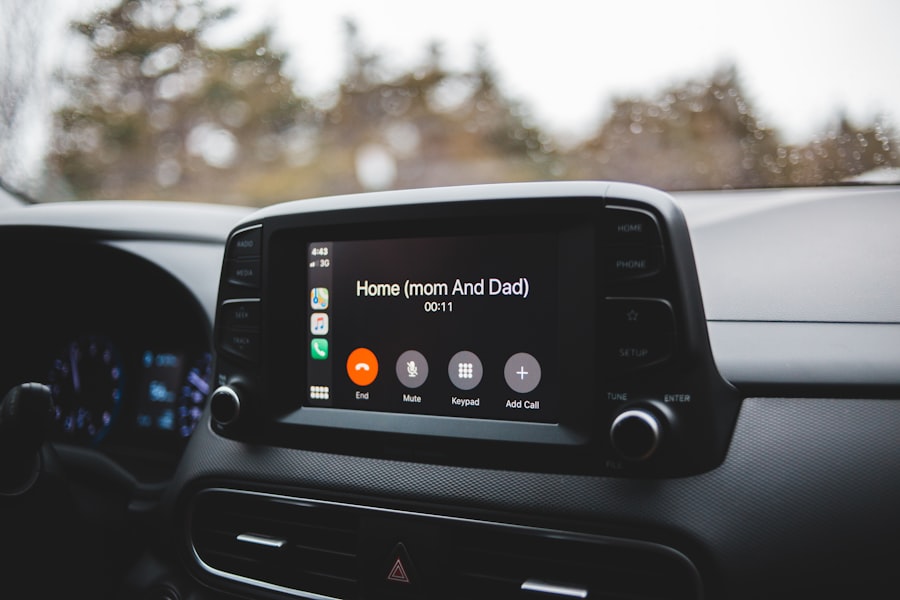The automotive market is a dynamic and multifaceted industry that encompasses a wide range of sectors, including manufacturing, sales, and aftermarket services. Understanding this market requires a deep dive into consumer behavior, technological advancements, and economic factors that influence purchasing decisions. For instance, the rise of electric vehicles (EVs) has significantly altered consumer preferences, with many buyers now prioritizing sustainability and energy efficiency over traditional performance metrics.
This shift is not merely a trend; it reflects a broader societal movement towards environmental consciousness, which has been further accelerated by government incentives and regulations aimed at reducing carbon emissions. Moreover, the automotive market is characterized by intense competition among established manufacturers and new entrants alike. Traditional automakers are now facing challenges from tech companies that are venturing into the automotive space, particularly in the realm of autonomous driving and connected vehicles.
This competition has led to increased innovation and investment in research and development, as companies strive to differentiate their offerings. Understanding these dynamics is crucial for businesses looking to navigate the complexities of the automotive landscape effectively. By analyzing market trends, consumer preferences, and competitive strategies, companies can position themselves to capitalize on emerging opportunities while mitigating potential risks.
Key Takeaways
- Grasping automotive market trends is essential for effective marketing strategies.
- Social media boosts brand awareness and customer engagement in the automotive sector.
- SEO enhances online visibility, driving organic traffic to automotive websites.
- Engaging email content nurtures leads and strengthens customer relationships.
- Data analytics and PPC advertising optimize targeting and maximize marketing ROI.
Utilizing Social Media for Brand Awareness
Social media has emerged as a powerful tool for automotive brands seeking to enhance their visibility and engage with consumers on a more personal level. Platforms such as Instagram, Facebook, and Twitter allow brands to showcase their vehicles through visually appealing content, including high-quality images and videos that highlight features and performance. For example, a luxury car manufacturer might use Instagram Stories to provide behind-the-scenes glimpses of their latest model’s design process or to share testimonials from satisfied customers.
This type of content not only builds brand awareness but also fosters a sense of community among enthusiasts who share a passion for automobiles. In addition to visual storytelling, social media offers automotive brands the opportunity to interact directly with their audience. Engaging with customers through comments, polls, and live Q&A sessions can create a more personalized experience that resonates with potential buyers.
For instance, a car dealership might host a Facebook Live event where they answer questions about financing options or provide insights into the latest models. This direct engagement not only enhances brand loyalty but also positions the dealership as a trusted source of information in the automotive space. By leveraging social media effectively, brands can cultivate a loyal following that translates into increased sales and customer retention.
Implementing Search Engine Optimization (SEO) Strategies

Search Engine Optimization (SEO) is an essential component of digital marketing that helps automotive businesses improve their online visibility and attract organic traffic to their websites. By optimizing website content for relevant keywords, companies can ensure that they appear in search engine results when potential customers are looking for information about vehicles or services. For example, an automotive repair shop might focus on keywords such as “oil change near me” or “brake repair services” to capture local search traffic.
This targeted approach not only drives traffic but also increases the likelihood of converting visitors into customers. In addition to keyword optimization, technical SEO plays a crucial role in enhancing website performance. Factors such as page load speed, mobile-friendliness, and secure connections (HTTPS) are critical for providing a positive user experience.
Search engines like Google prioritize websites that offer fast loading times and are optimized for mobile devices, as these factors contribute to higher user satisfaction. For instance, an automotive e-commerce site that loads quickly and is easy to navigate will likely retain visitors longer than one that is slow or cumbersome. By implementing robust SEO strategies, automotive businesses can improve their search rankings, attract more qualified leads, and ultimately drive sales growth.
Creating Engaging Content for Email Marketing
| Metric | Description | Typical Range | Importance |
|---|---|---|---|
| Open Rate | Percentage of recipients who open the email | 15% – 30% | High – Indicates subject line effectiveness and initial engagement |
| Click-Through Rate (CTR) | Percentage of recipients who click on links within the email | 2% – 10% | High – Measures content relevance and call-to-action effectiveness |
| Conversion Rate | Percentage of recipients who complete a desired action after clicking | 1% – 5% | High – Reflects overall campaign success and content impact |
| Bounce Rate | Percentage of emails not delivered to recipients | Less than 2% | Medium – Affects sender reputation and deliverability |
| Unsubscribe Rate | Percentage of recipients who opt out from the mailing list | Less than 0.5% | Medium – Indicates content relevance and frequency appropriateness |
| Spam Complaint Rate | Percentage of recipients marking the email as spam | Less than 0.1% | Critical – Impacts deliverability and sender reputation |
| Read Time | Average time recipients spend reading the email | 10 – 30 seconds | Medium – Shows engagement depth with the content |
| Forward/Share Rate | Percentage of recipients who share the email with others | 0.1% – 1% | Low – Indicates content virality and value |
Email marketing remains one of the most effective channels for reaching consumers in the automotive industry. However, the key to successful email campaigns lies in creating engaging content that resonates with recipients. Automotive brands can leverage personalized messaging to enhance the relevance of their emails.
For instance, a dealership might segment its email list based on customer preferences—such as those interested in SUVs versus sedans—and tailor content accordingly. This could include exclusive offers on specific models or invitations to test drive events that align with the recipient’s interests. In addition to personalization, incorporating rich media elements such as videos and interactive content can significantly boost engagement rates.
For example, an email campaign promoting a new vehicle model could include a video showcasing its features and performance in action. Interactive elements like polls or quizzes can also encourage recipients to engage with the content actively. By providing valuable information and entertainment through email marketing, automotive brands can foster stronger relationships with their audience, leading to increased brand loyalty and higher conversion rates.
Leveraging Pay-Per-Click (PPC) Advertising
Pay-Per-Click (PPC) advertising is a powerful tool for automotive businesses looking to drive immediate traffic to their websites and generate leads. By bidding on relevant keywords in search engines like Google or utilizing social media platforms for targeted ads, companies can reach potential customers at critical moments in their buying journey. For instance, an automotive dealership might run PPC campaigns targeting keywords such as “best deals on new cars” or “used cars for sale,” ensuring that their ads appear prominently when consumers are actively searching for vehicles.
One of the significant advantages of PPC advertising is its ability to provide measurable results in real-time. Automotive businesses can track key performance indicators (KPIs) such as click-through rates (CTR), conversion rates, and return on ad spend (ROAS) to assess the effectiveness of their campaigns. This data-driven approach allows marketers to make informed decisions about budget allocation and ad optimization.
For example, if a particular ad set is performing exceptionally well in terms of conversions, businesses can increase their budget for that campaign while pausing or adjusting underperforming ads. By leveraging PPC advertising strategically, automotive brands can achieve rapid visibility and drive qualified traffic to their offerings.
Utilizing Data Analytics for Targeted Marketing

In today’s data-driven landscape, utilizing analytics is paramount for automotive businesses aiming to refine their marketing strategies and enhance customer targeting. By analyzing consumer behavior data—such as browsing patterns, purchase history, and demographic information—companies can gain valuable insights into their audience’s preferences and needs. For instance, an automotive manufacturer might discover that younger consumers are increasingly interested in hybrid vehicles due to environmental concerns.
Armed with this knowledge, they can tailor their marketing messages to resonate with this demographic more effectively. Moreover, data analytics enables businesses to segment their audience based on various criteria, allowing for more personalized marketing efforts. For example, an automotive service center could analyze customer data to identify those who have not visited in over six months and send targeted promotions or reminders for routine maintenance services.
This approach not only increases the likelihood of re-engaging lapsed customers but also demonstrates a commitment to customer care. By harnessing the power of data analytics, automotive brands can create targeted marketing campaigns that drive engagement and foster long-term relationships with their customers.
Building a Strong Online Presence with Website Optimization
A strong online presence is essential for automotive businesses looking to thrive in a competitive market. Website optimization plays a critical role in establishing this presence by ensuring that websites are user-friendly, informative, and visually appealing. A well-optimized website should load quickly, be mobile-responsive, and feature intuitive navigation that allows visitors to find information easily.
For example, an automotive dealership’s website should prominently display inventory listings with high-quality images and detailed specifications to facilitate informed decision-making by potential buyers. In addition to user experience considerations, website optimization also involves implementing effective calls-to-action (CTAs) that guide visitors toward desired actions—such as scheduling a test drive or requesting a quote. Clear and compelling CTAs can significantly enhance conversion rates by encouraging users to take the next step in their buying journey.
Furthermore, integrating customer testimonials and reviews on the website can build trust and credibility among potential buyers. By focusing on website optimization strategies, automotive businesses can create an engaging online experience that attracts visitors and converts them into loyal customers.
Developing a Comprehensive Digital Marketing Strategy
A comprehensive digital marketing strategy is essential for automotive businesses seeking sustained growth in an increasingly competitive landscape. Such a strategy should encompass various channels—including social media, SEO, email marketing, PPC advertising, and data analytics—to create a cohesive approach that maximizes reach and engagement. For instance, an automotive brand might launch a new vehicle model by simultaneously promoting it through social media teasers, targeted email campaigns to existing customers, and PPC ads aimed at potential buyers searching online.
Moreover, integrating these channels allows for cross-promotion opportunities that enhance overall effectiveness. For example, social media posts can direct followers to sign up for exclusive email newsletters featuring special offers or events related to new vehicle launches. Additionally, leveraging data analytics across all channels enables businesses to continuously refine their strategies based on performance metrics and consumer feedback.
By developing a comprehensive digital marketing strategy that aligns with business goals and customer needs, automotive brands can position themselves for long-term success in an ever-evolving market landscape.




